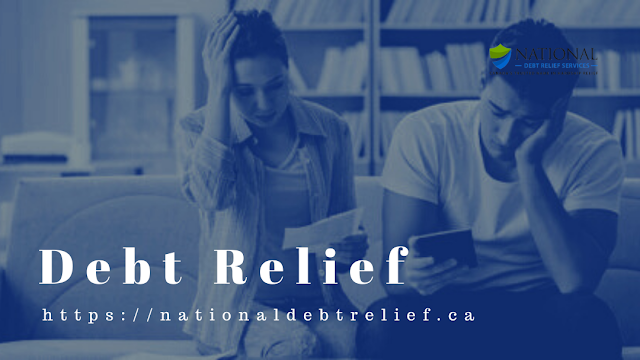Top 5 Solutions When You Are Declined for a Canadian Debt Consolidation
Applying for a Debt Consolidation Program and ending up getting declined is heartbreaking. It’s like finding the right solution but not being able to take advantage of it. We understand the stress, let us help you go through some of the things that can be done when you are declined for debt consolidation.
First, know that you are not alone, we can help. We help
hundreds of Canadians get out of debt every day. Our Government-Approved
Debt Consolidation Program can help reduce and eliminate up to 50%-75%
of your debts. We are Canada’s trusted name in debt relief, we have
hundreds of google reviews. Read our 5-star google ratings and reviews at this link.
If you live in Ontario and have over $10,000 worth
of debt, you need to know about this government-approved program and its
amazing benefits. Please read thru to learn more.
Many Ontarians choose debt consolidation program as their debt relief option or debt support due to the number of key benefits it provides such as:
ü Combine your debts into one affordable monthly payment
ü Stop Collection Calls
ü Stop Wage Garnishment
ü Stop lawsuits
ü Freeze interests
ü Chance to rebuild your credit
However, sometimes things are out of our control and your debt consolidation application gets rejected.
Below are the things you can do to go about a rejected debt consolidation:
1. Find the reason for the rejection
You can find the reason for rejection by asking your lenders. They will not decline your application without any valid reason. It is a smart move to know where you fell short so you can adjust and possibly make a counteroffer.
ü Having a low credit score.
ü Debt-to-income ratio.
ü Debt Value or amount.
ü They are not happy with what they get.
2. Fix your credit
One of the reasons for rejection is having a low credit score. Lenders look at your credit score anytime you apply for loans or new credit line. This serves as the basis for their risk assessment.
3. Reduce or pay off one of your debts
If you owe too much debt, the possibility is that your lender
sees you as a risk. You might have credit card debt, personal loans, medical
bills, collection accounts, and personal taxes. This is a concern for the
lenders.
If you have hobbies that you can turn into side gigs or
alternative income, it can help you earn extra money which you can put
towards paying off one of your debt more rapidly. Building a balanced budget thru
this method can help attract lenders to approve your debt consolidation loan in
the future.
4. Seek help to improve budgeting and
financial knowledge
If you owe too much debt due to your lack of proper budgeting and you lose track of your expenses, it’s about time to start practicing proper money handling. It’s true that we sometimes learn the hard way. But focus on your present situation to help prepare for the future.
5. Talk to National Debt Relief Services
National Debt Relief Services is committed to preserving your personal
information, all communication and correspondences are secured and
confidential. We offer Free Consultation, no risks, no commitment, and no
obligation. Even if you don’t use our service, you have known must-known
information that can help you get out of debt.
We will create a personalized debt relief and consolidation
program for any Ontarians experiencing severe debt problems. We helped
thousands of Canadians get out of debt, please feel free to read our hundreds
of 5-star google reviews at this [link].
Click below to get started and get a free debt savings estimate.
Serving These Cities and Surrounding
Rural Areas:
Toronto, Ottawa, Mississauga, Brampton, Hamilton, London,
Markham, Vaughan, Kitchener, Windsor, Richmond Hill, Burlington, Greater
Sudbury, Oshawa, Barrie, St. Catherines, Guelph, Cambridge, Kingston, Thunder
Bay, Waterloo, Brantford, Pickering, Niagara Falls, Peterborough, Kawartha
Lakes, Sault Ste. Marie, Sarnia, Norfolk County, Welland, North Bay,
Belleville, Cornwall, Haldimand County, Quinte West, Timmins, Woodstock, St.
Thomas, Brant, Stratford, Orillia, Prince Edward County, Clarence-Rockland,
Brockville, Owen Sound, Thorold, Port Colborne, Kenora, Pembroke, Elliot Lake,
Temiskaming Shores, Dryden









wow this could be the most useful blog i have ever come across. looking forward another useful blog on how to find a mortgage agent
ReplyDelete